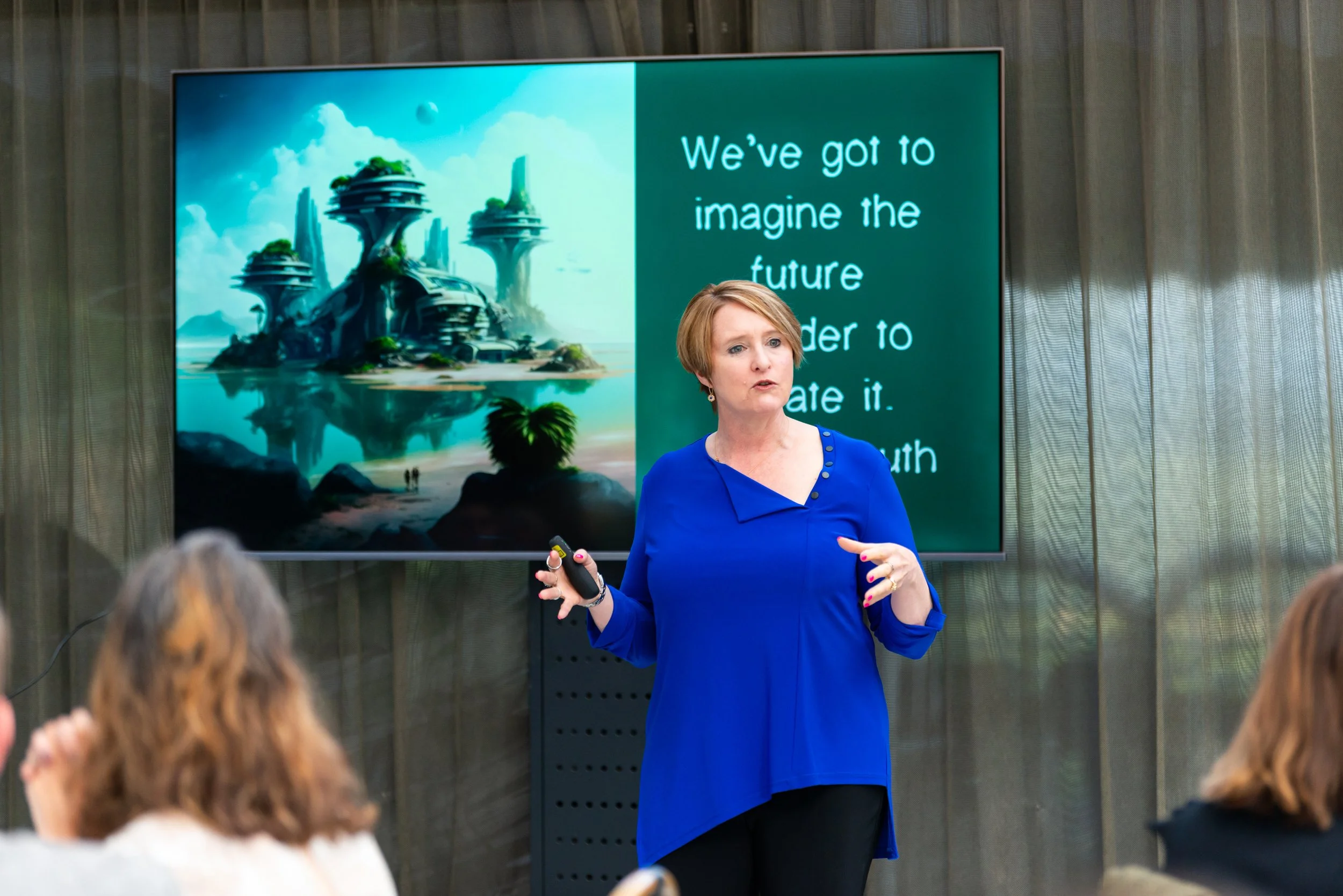There’s a picture of me at fifteen in a brand new bathing suit. It’s fancy with a spectacular design and bright yellow trim.
Look again - shifting leadership perspectives
I remember my fifteen-year-old self looking at this photo when we got it back from the printer (well before immediate digital gratification). She grabbed the photo and peered at it closely.
“My thighs are so fat.”
She felt deep pain.
She remembers exactly when body awareness - and shame - began. It was in ballet class two years earlier where two older girls were complaining of their respective body faults. One thought her legs were too stumpy, the other grumbled her bottom was too flat.
They turned to my thirteen-year-old self and said, “She has a nice-sized waist.”
Up until that point, my thirteen-year-old self had no idea that her waist had a quantifiable aspect to it. Her body had been for dancing and playing and running. Now it had a measure, a comparison.
The comparisons and judgments and inevitable shortcomings piled slowly on top of one another until every glance in the mirror revealed something lacking.
A lifetime of this narrative adds up. Derision and despair formed the default perspective.
“Until we start to see things differently, we see the same things.”
There’s this quote, attributed often to both Wayne Dyer and Max Planck that says, “Change the way you look at things, and the things you look at change.”
One of the basic tenets of quantum theory is that it’s impossible to observe the movement of particles without affecting their movement. The observer is therefore engaged with whatever they are observing. So if we see our bodies as fat and bad, so they become so.
I think there’s a more true observation:
“When we change the way we look at things, things don’t change; WE do.”
My forty-nine-year-old self looks now at this same picture and sees something different. She sees a young girl moving into womanhood. She sees a healthy body that is in no way fat or misshapen. She sees a body vibrant with energy and keen to explore the world.
If only she had felt this level of appreciation then!
My forty-nine-year-old self has learned to look with compassion and appreciation at her body. She has learned to be gentle and full of awe.
It’s the same picture. It has most definitely not changed.
What has changed is the way the observer observes. She has decided to see with loving eyes, not hateful ones. And so she has changed, while the picture remains the same.
Approach the people stuff from a new angle
When it comes to people stuff, the principle is the same.
We can see others as thorns, as problems to solve, as burdens to bear.
Or we can see them as precious beings, adrift in the sea of experience, worthy of love, deserving of respect.
They may not change. Their behaviour might not change.
But it’s likely WE will change. How we choose to see may risk us becoming more loving, wise and compassionate.
And that’s worth looking with new eyes.
What do you look at and see only the bad? Your child? Your spouse? Your colleague? How might you look differently at what causes you pain? What are you willing to risk becoming by changing the way you see?
***
Related Articles:
How do you challenge your point of view?
How to deal with the politics of hate?
***
About the author, Canberra leadership expert Zoë Routh:
Zoë Routh is one of Australia’s leading experts on people stuff - the stuff that gets in our way of producing results, and the stuff that lights us up. She works with the growers, makers, builders to make people stuff fun and practical.
Zoë is the author of four books: Composure - How centered leaders make the biggest impact, Moments - Leadership when it matters most, Loyalty - Stop unwanted staff turnover, boost engagement, and build lifelong advocates, and People Stuff - Beyond Personalities: An advanced handbook for leadership. People Stuff was awarded Book of the Year 2020 by the Smart WFM Australian Business Book Awards.
Zoë is also the producer of The Zoë Routh Leadership Podcast.

